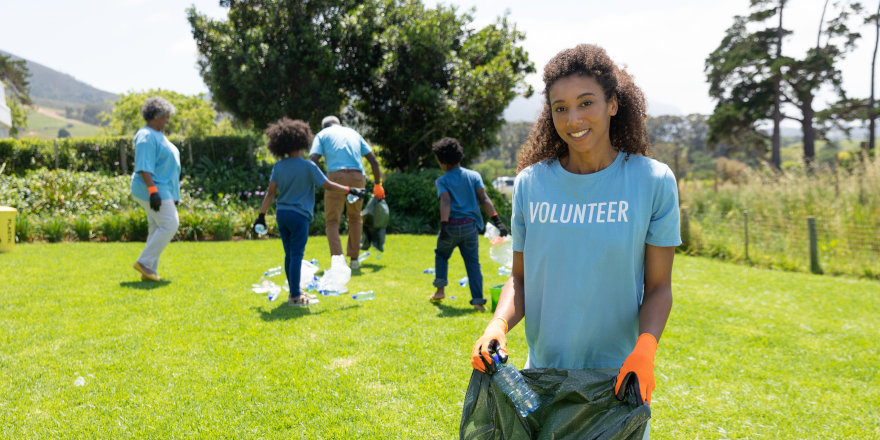Updated: Volunteering Could Earn You Up to $5,000 This Summer
The federal government has launched the Canada Student Service Grant for students and new grads.

Update: You may have heard some upheaval in the news around WE Charity and the Canada Student Service Grant (CSSG) program it administered. WE Charity has pulled out of the program, so student placements are on hold.
Student volunteer positions on hold
Over 35,000 students and new grads had applied to the $900 million program, and some of these placements would have begun already if not for questions about WE's administration. Many teachers, too, had been recruited to help supervise students. Applicants haven't had much official direction, unfortunately.
The federal government has taken on responsibility for the program going forward. WE had established around 24,000 placements with many different organizations, and the government is trying to preserve them.
There's also a concern that the program sidesteps the minimum wage for young people. Some have argued a direct cash transfer to students would be more effective and efficient.
Still, the Canada Student Service Grant is alive for now. The information below is still accurate: you have until October to accrue up to 500 hours of volunteer work in order to claim the grant. How you'll be paid, though — and when — is unclear. The federal government is trying to make the program work despite some unforced errors. Your best bet still is to apply at the I Want to Help site, so at least you'll be in the system.
Canada Service Corps: #RisingYouth
In the meantime, there's also the Rising Youth community service micro-grants. If you have a small project idea for your community, and need a bit of cash to get it started, you should apply for a micro-grant of anywhere from $250 to $1,500. Starting a project like this will keep you busy, help others, and of course, look good on a resumé!
Previously:
If you're a student or recent graduate, and 30 years old or younger, you could be eligible for a grant worth anything from $1,000 to $5,000.
$1,000 grant for every 100 hours of service
If you're having trouble finding work, but want to volunteer in your community, you'll be eligible for a $1,000 grant for every 100 hours of volunteer service you complete.
So if you're a volunteering machine, you could put in 500 hours of service to claim the entire $5,000 grant.
Government-led COVID-19 relief
The program has officially launched, and runs until October 31. The Canada Student Service Grant was announced in April as part of the government's $9-billion COVID-19 response package.
How to qualify for the program
Step 1: Eligibility
You must be a Canadian citizen, permanent resident, First Nations, Métis or Inuit, no older than 30 years as of December 31, 2020.
Be enrolled full- or part-time at a Canadian post-secondary institution in Spring, Summer, or Fall 2020 — or if you've finished your studies as of December 2019 or later.
If you study abroad, you're eligible, but you must currently live in Canada. If you're already receiving CESB, you're still eligible! However, those receiving CERB are not.
Step 2: Find a role
Not all volunteer roles are the same. Your position must meet the following criteria:
- Take place in Canada
- Support Canada's COVID-19 response
- Comply with public health guidelines
- Provide a meaningful experience for you, the volunteer
- Require at least 2 hours a week for a minimum of 4 weeks
Positions can be virtual, meaning you can volunteer from home! If you're already volunteering, you may already qualify.
Step 3: Register and apply
When you're ready, be sure to officially apply for the program. You'll be asked a few questions. Here's what you'll need to provide:
- A copy of a valid piece of ID, like a driver's license or passport
- Letter of acceptance from a post-secondary institution for Spring, Summer, or Fall 2020, OR
- Proof of graduation from December 2019 or later
You have until November 6 to submit all your documents.
Step 4: Track your hours
When you start volunteering, keep track of your hours. You'll be assigned a supervisor to help. The more hours, the more you'll get paid — but be aware the grant is only in chunks of $1,000, so you won't get $1,500 for 150 hours.
Finding a volunteer position
This is a tough time to find paying work, but there are many ways to give back. To help connect students with volunteer opportunities, a new website has been launched: I Want to Help. Search your city to find volunteer positions near you.
Eligible charities and not-for-profits are assisting Canadians through this pandemic in a million different ways, so you're sure to find a role that will both interest and challenge you, and help you give back to those who need your help most.
Of course, the grant money's nothing to sneeze at either. $10 per hour isn't stellar, sure, but it's a lot better than more Netflix. Plus you'll be in your community, making the world a better place.
Check out the I Want to Help website to get started, and be sure to check back frequently as new opportunities are listed throughout the summer.
Find a Volunteer Role
